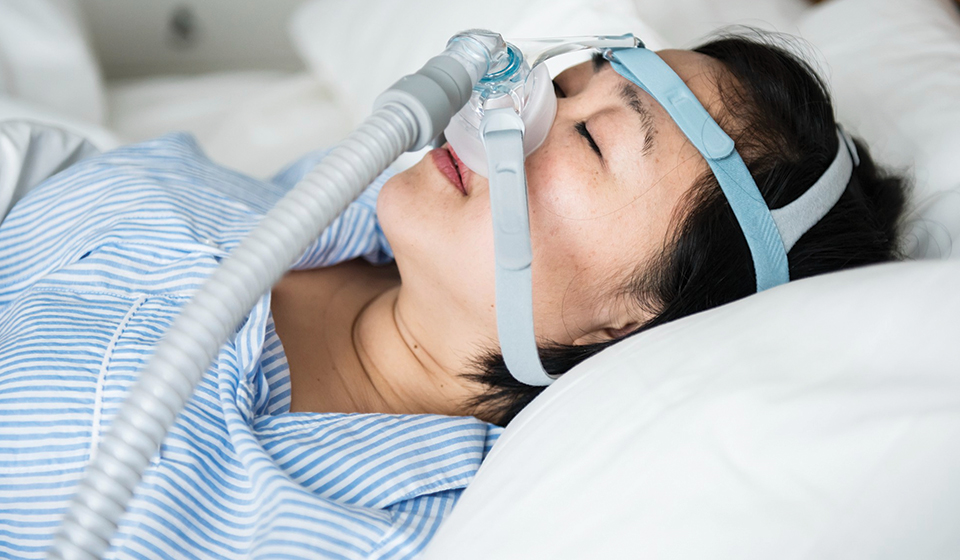Sleep apnea in Houston is a serious sleep disorder that can have significant consequences on an individual’s overall health and well-being. This condition is characterized by repeated episodes of breathing interruption during sleep, which can lead to a variety of health issues if left untreated. Understanding the causes, effects, and treatment options for sleep Sleep apnea in Houstonpnea is crucial for those affected by this condition.
Causes of Sleep Apnea
There are two main types of sleep apnea: obstructive sleep apnea (OSA) and central sleep apnea (CSA). Each type has distinct causes, but they share some common risk factors.
Obstructive Sleep Apnea (OSA):
Excess fat deposits around the upper airway can obstruct proper breathing during sleep.
- Anatomical abnormalities: Structural issues such as a narrow airway, large tonsils or adenoids, or a recessed jaw can contribute to airway obstruction
- Muscle relaxation: During sleep, the muscles in the throat tend to relax, which can cause the airway to collapse or become obstructed.
Central Sleep Apnea (CSA)
- Neurological conditions: Disorders affecting the brain’s ability to regulate breathing, such as stroke, Parkinson’s disease, or brain injuries, can lead to CSA.
- Heart disorders: Conditions like congestive heart failure or atrial fibrillation can interfere with the brain’s signals that control breathing.
Additionally, certain risk factors like age, gender (men are more prone to sleep apnea), family history, and lifestyle factors like smoking and alcohol consumption can increase the likelihood of developing sleep apnea.
Effects of Sleep Apnea on Health
Untreated sleep apnea can have far-reaching consequences on an individual’s physical and mental health. Some of the potential effects include:
- Cardiovascular problems: Sleep apnea has been linked to an increased risk of high blood pressure, heart disease, stroke, and irregular heartbeats.
- Metabolic disorders: People with sleep apnea are more likely to develop type 2 diabetes, metabolic syndrome, and obesity due to disruptions in hormone regulation and metabolism.
- Cognitive impairment: Chronic sleep deprivation and oxygen deprivation caused by sleep apnea can lead to problems with memory, concentration, and decision-making abilities.
- Mood disorders: Sleep apnea has been associated with an increased risk of depression, anxiety, and other mood-related issues.
- Daytime fatigue and sleepiness: Frequent interruptions in sleep can result in excessive daytime sleepiness, decreased productivity, and an increased risk of accidents.
- Respiratory problems: Sleep apnea can exacerbate or contribute to the development of respiratory conditions like asthma or chronic obstructive pulmonary disease (COPD).
Treatment Options for Sleep Apnea
Fortunately, there are several effective treatment options available for sleep apnea, depending on the severity and underlying cause of the condition.
- Continuous Positive Airway Pressure (CPAP) therapy: It is the most common and effective treatment for obstructive sleep apnea. It involves wearing a mask connected to a machine that delivers a steady flow of air to keep the airway open during sleep.
- Oral appliances: For mild to moderate cases of OSA, a custom-fitted oral appliance can be used to reposition the jaw and tongue, preventing airway obstruction.
- Weight loss: For individuals with obesity-related sleep apnea, losing excess weight through a healthy diet and exercise plan can often alleviate or reduce the severity of symptoms.
- Surgery: In some cases, surgical procedures may be recommended to remove excess tissue or correct anatomical abnormalities that contribute to sleep apnea.
- Positional therapy: For individuals whose sleep apnea is primarily caused by sleeping on their back, positional therapy devices or techniques can be used to encourage side sleeping.
- Lifestyle changes: Adopting healthy lifestyle habits, such as quitting smoking, limiting alcohol consumption, and practicing good sleep hygiene, can also help manage sleep apnea symptoms.
It’s crucial to consult with a sleep specialist or healthcare provider if you suspect you or a loved one may be suffering from sleep apnea. They can perform an evaluation, diagnose the condition, and recommend the most appropriate treatment plan based on your individual needs and circumstances.
Conclusion
Seeking treatment for sleep apnea is crucial not only for improving sleep quality but also for reducing the risk of associated health complications with Unident Family Dentistry in Houston, TX. With proper management and treatment, individuals with sleep apnea can experience improved overall health, increased energy levels, and a better quality of life.






